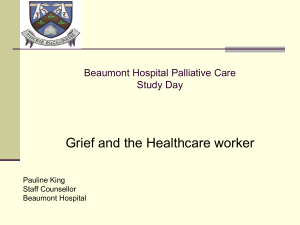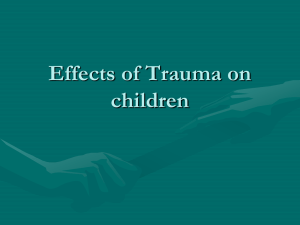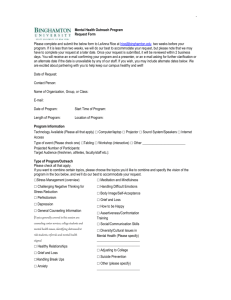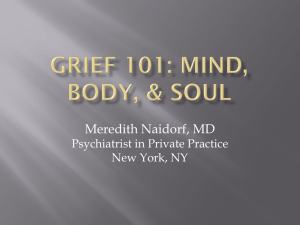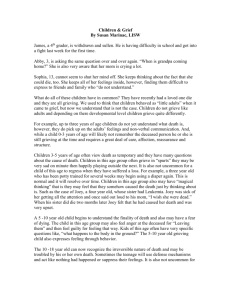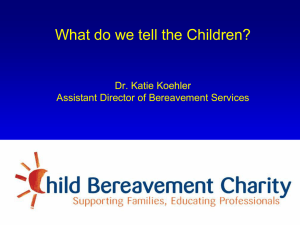Maria Yellow Horse Brave Heart
advertisement
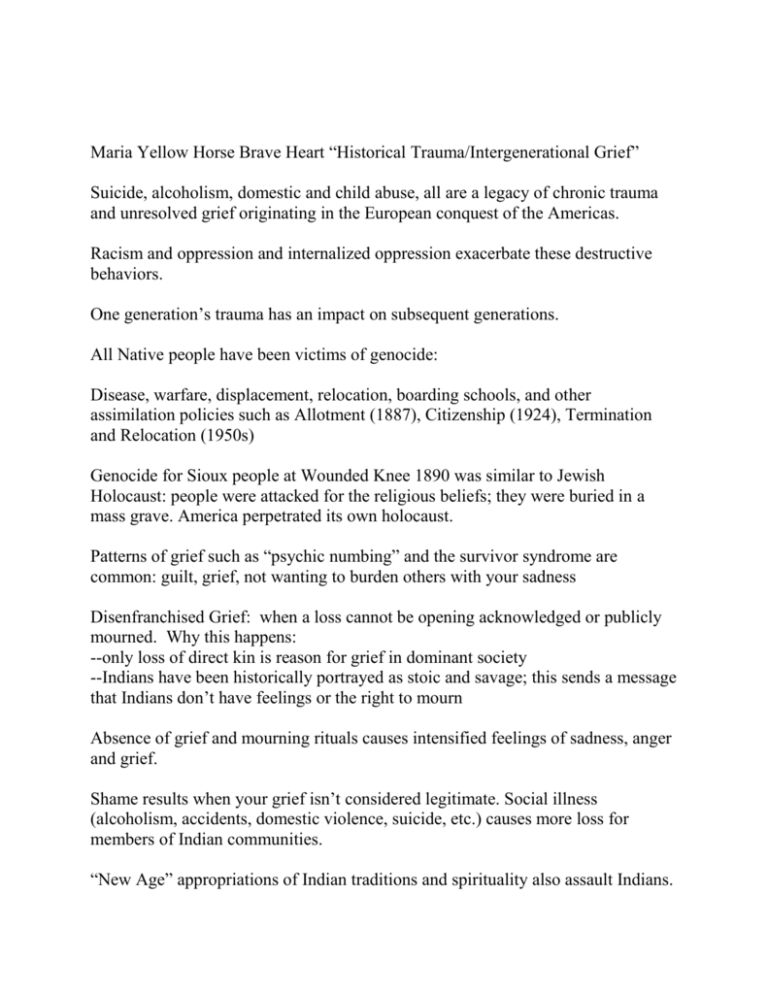
Maria Yellow Horse Brave Heart “Historical Trauma/Intergenerational Grief” Suicide, alcoholism, domestic and child abuse, all are a legacy of chronic trauma and unresolved grief originating in the European conquest of the Americas. Racism and oppression and internalized oppression exacerbate these destructive behaviors. One generation’s trauma has an impact on subsequent generations. All Native people have been victims of genocide: Disease, warfare, displacement, relocation, boarding schools, and other assimilation policies such as Allotment (1887), Citizenship (1924), Termination and Relocation (1950s) Genocide for Sioux people at Wounded Knee 1890 was similar to Jewish Holocaust: people were attacked for the religious beliefs; they were buried in a mass grave. America perpetrated its own holocaust. Patterns of grief such as “psychic numbing” and the survivor syndrome are common: guilt, grief, not wanting to burden others with your sadness Disenfranchised Grief: when a loss cannot be opening acknowledged or publicly mourned. Why this happens: --only loss of direct kin is reason for grief in dominant society --Indians have been historically portrayed as stoic and savage; this sends a message that Indians don’t have feelings or the right to mourn Absence of grief and mourning rituals causes intensified feelings of sadness, anger and grief. Shame results when your grief isn’t considered legitimate. Social illness (alcoholism, accidents, domestic violence, suicide, etc.) causes more loss for members of Indian communities. “New Age” appropriations of Indian traditions and spirituality also assault Indians. Alcohol and Trauma/Grief Low tolerance to alcohol in indigenous America In colonized people, alcohol is a self-destructive act associated with depression, an outcome of internalized oppression and unresolved grief Internalized oppression comes from identifying with the oppressor; believing what the oppressor tells you about yourself. Healing Unresolved Grief 1) 2) 3) 4) 5) 6) 7) 8) communal grief rituals individual, family, group therapy spiritual development create strong kinship networks to create a sense of belonging and strong sense of identity heighten historical awareness to become aware of source of grief and anxiety lift the taboo against grieving reattach to traditional Native values understanding the relationship of the past to the present and future gives one the courage to initiate healing (76) Lisa Poupart “Internalized Oppression” Indians are now oppressing themselves as evidenced by social ills; genocide is a raw, unhealing wound, the soul wound Colonization is silenced and “whitewashed” by white society with its master narrative of “discovery” and “manifest destiny” Indian peoples’ pain is not recognized or valued by the dominant culture. Pain and rage are turned inward. We take out rage on those who are close to us; we can’t take out rage against the dominant culture. Indians have internalized white patriarchy, thus the precarious position of Indian women and children. Indians’ silence contributes to the oppression. We must understand what has happened to us and break the silence. We must reclaim traditional ways. We must speak for ourselves and create our own images of ourselves. For Members of the Dominant Culture—what They can Do 1) examine our own privilege 2) reject constructions of Otherness, refuse to participate in the appropriation of difference 3) be willing to listen to Others 4) question our “universal Truths” and don’t silence Others when they don’t fit your frame; examine the exclusiveness of your framework Conclusion Indian people are sometimes complicit in their own oppression if we accept the position the dominant culture assigns to us. Take responsibility; break the silence; break the transmission of trauma and grief.
